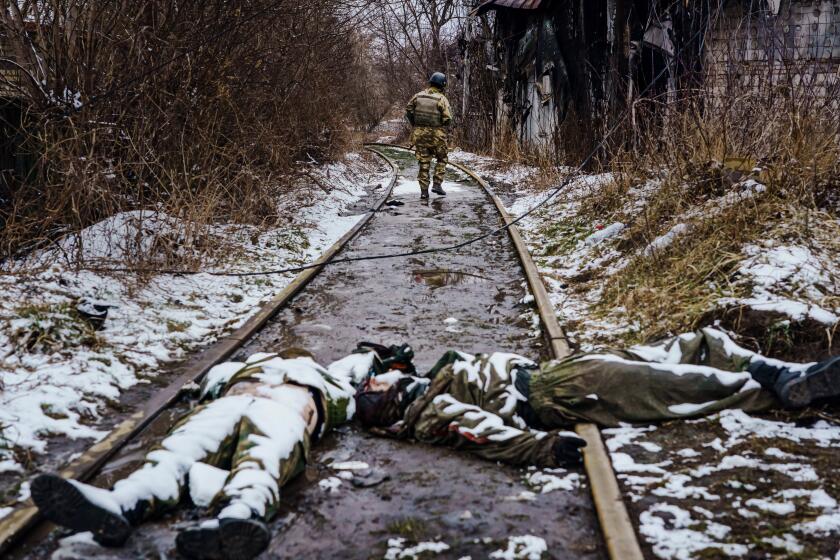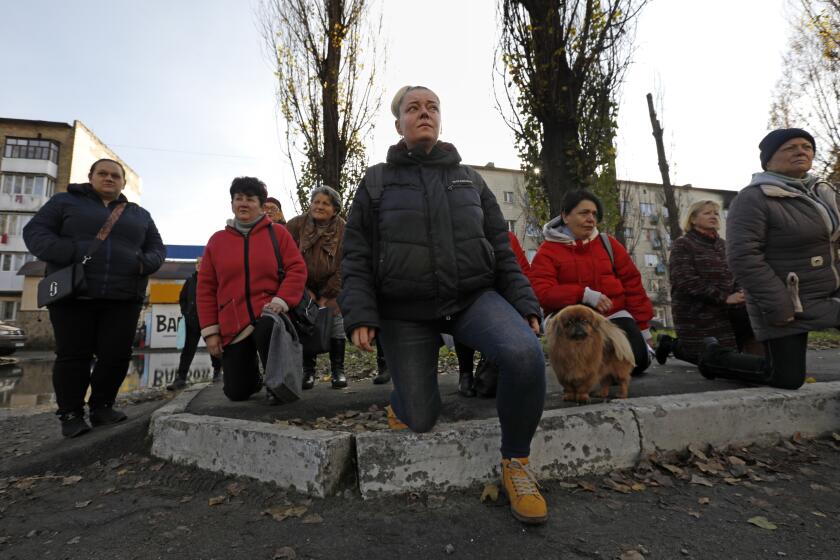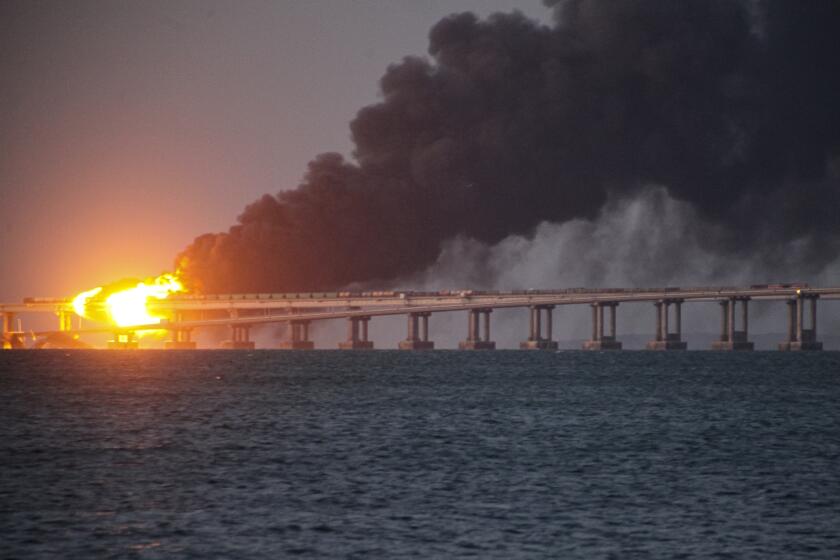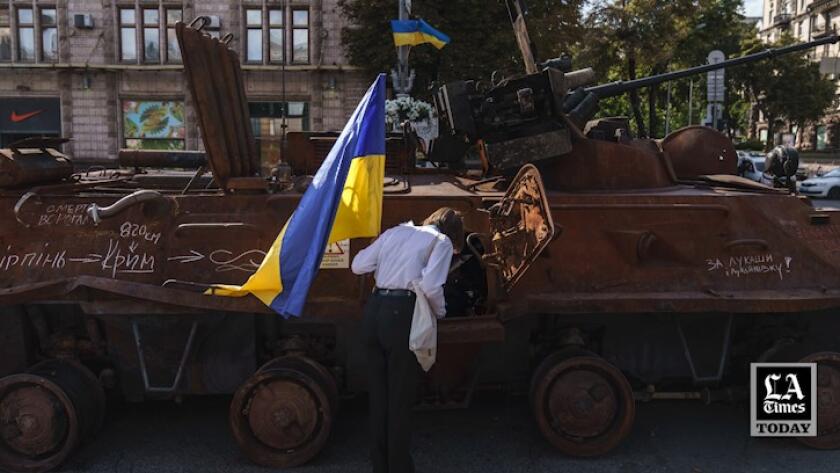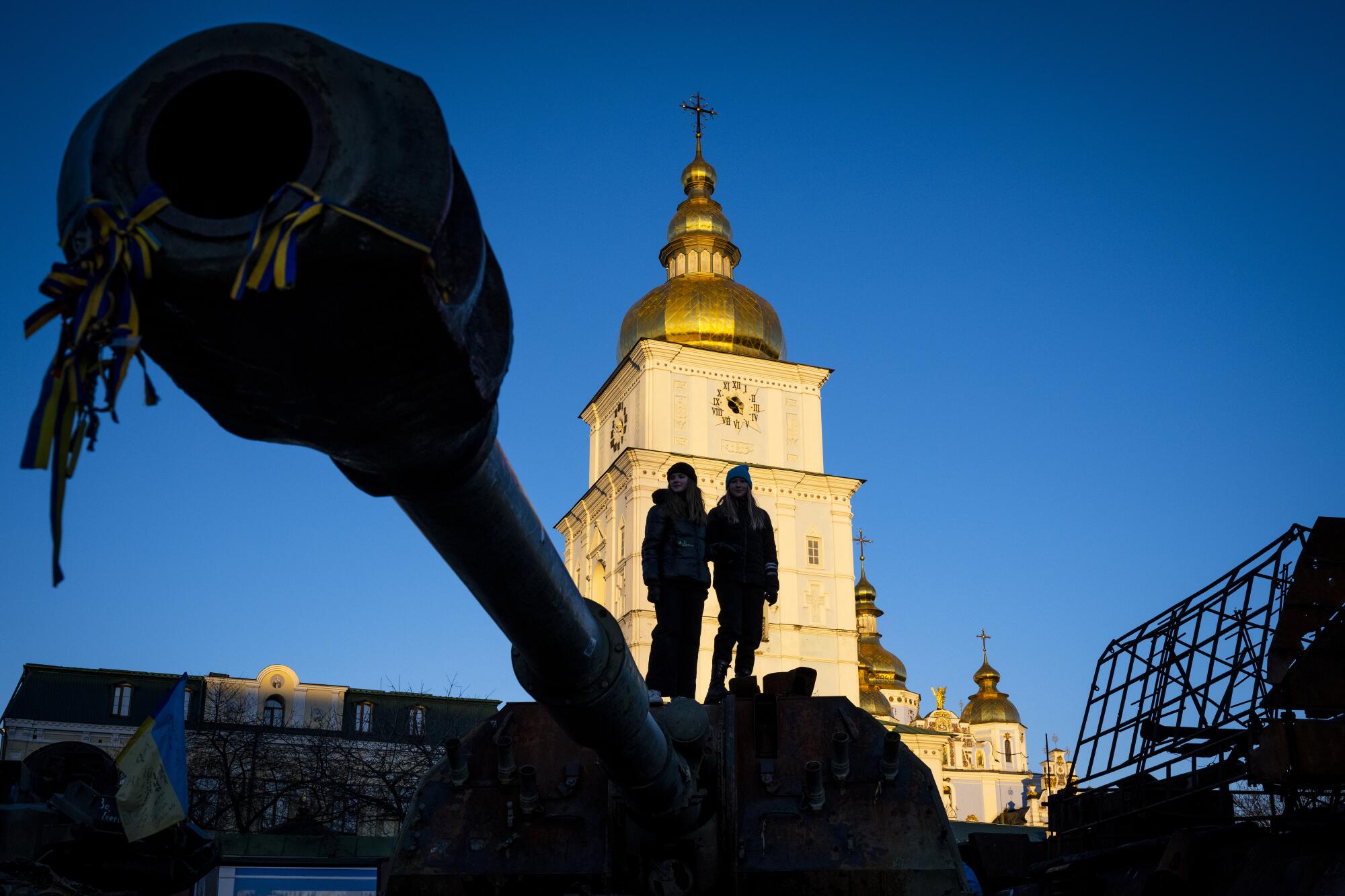
KYIV, Ukraine ‚ÄĒ Almost everyone in Ukraine can recall some vivid scrap of what they were feeling and doing last Feb. 24, the day Vladimir Putin‚Äôs army launched Europe‚Äôs biggest land war since 1945, seeking to subdue a country that the Russian president claims is not in fact a country.
In the early dark hours, as armored vehicles rumbled across the border and warplanes filled the skies, people were sleeping, bathing, making love, video-gaming, soothing a sick child. Later, as the invasion‚Äôs full scope sank in, there were frantic calls and messages to relatives and friends in harm‚Äôs way ‚ÄĒ a status that eventually came to include nearly every corner of Ukraine.
The cost of a year of warfare ‚ÄĒ the vast escalation of 2014 Russian-engineered conflict in the country‚Äôs east ‚ÄĒ has been staggering: tens of thousands of people dead or maimed, millions driven from their homes, urban landscapes disfigured, desolate mass graves unearthed, the global economy jolted along with Europe‚Äôs entire security architecture.
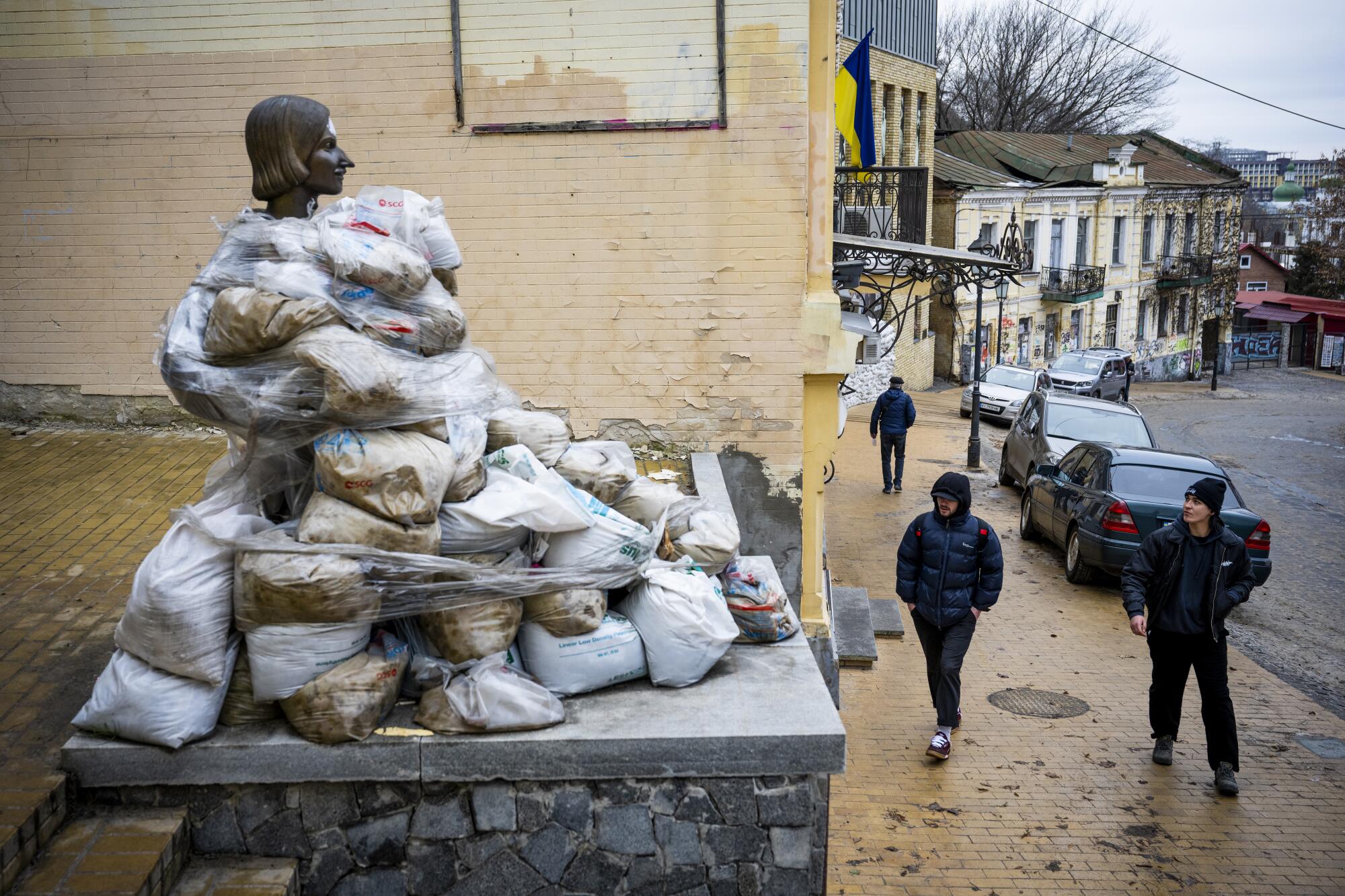
‚ÄúAll of us were changed by this year,‚ÄĚ said Ivan Fedorov, the exiled mayor of Russian-occupied Melitopol, a southern city seized early in the invasion.
For Ukraine, the bleak assessment is that Putin will not stop until he is stopped, and the fight is thus an existential one. The Biden administration, together with Western allies, has thrown billions of dollars of military aid into the fight, arguing that the stakes include not only the survival of Ukraine, but also that of all sovereign democracies.
Los Angeles Times photographers document the battle in Ukraine after Russian forces invaded nearly a year ago.
Over the months, the narrative has veered from Ukraine’s unexpectedly fierce resistance and unlikely battlefield triumphs to the ugly potential for a long, grinding fight that neither side can win.
An attempted new offensive by Russian forces is underway in Ukraine’s east, a brutal struggle for a few yards of territory at a time. And Russia continues to pummel civilian areas and the national power grid with waves of drone and missile strikes aimed at smashing both infrastructure and public morale. Ukraine does daily battle on the diplomatic front, appealing for more heavy weaponry in advance of the fast-approaching spring.
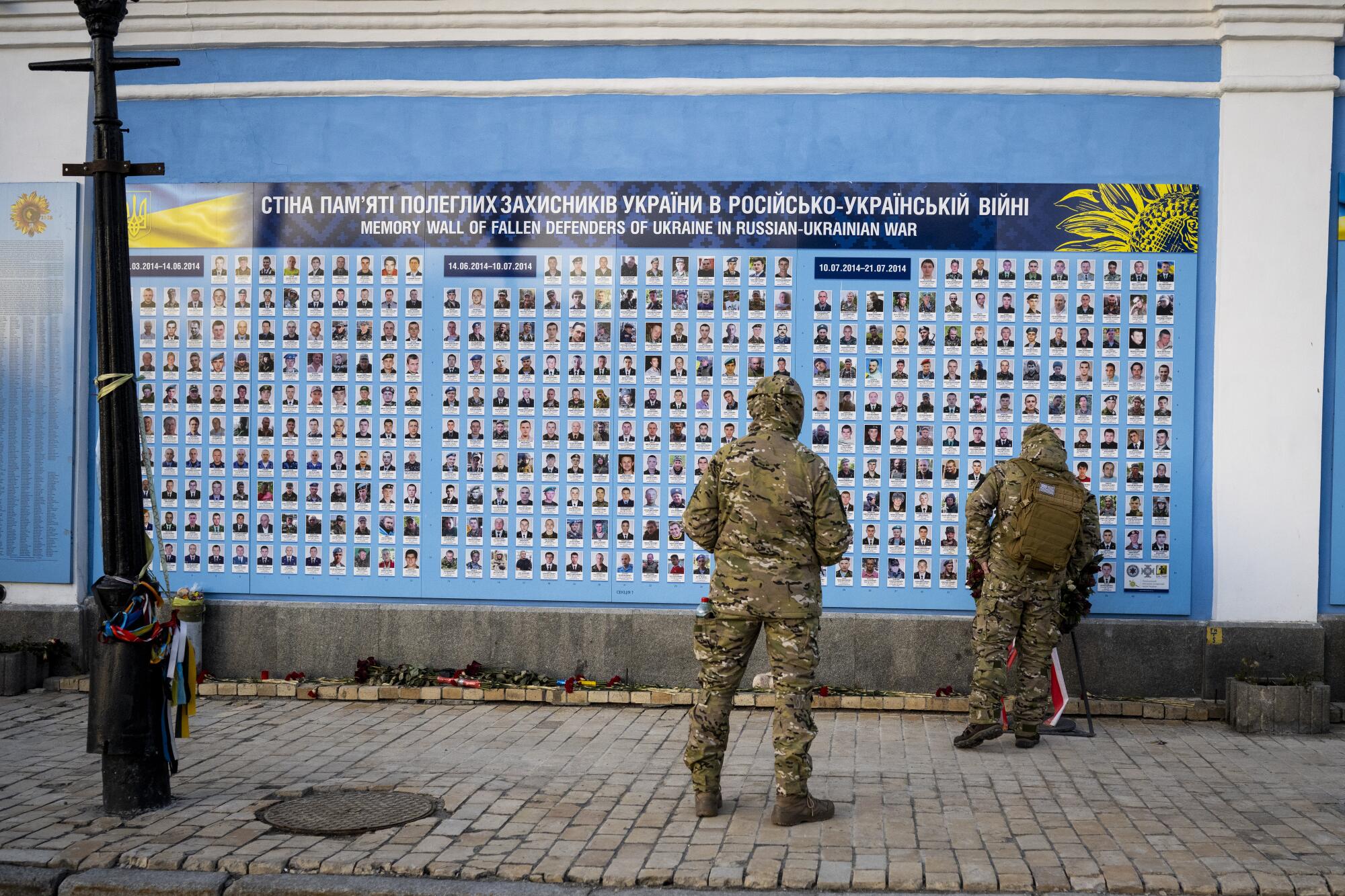
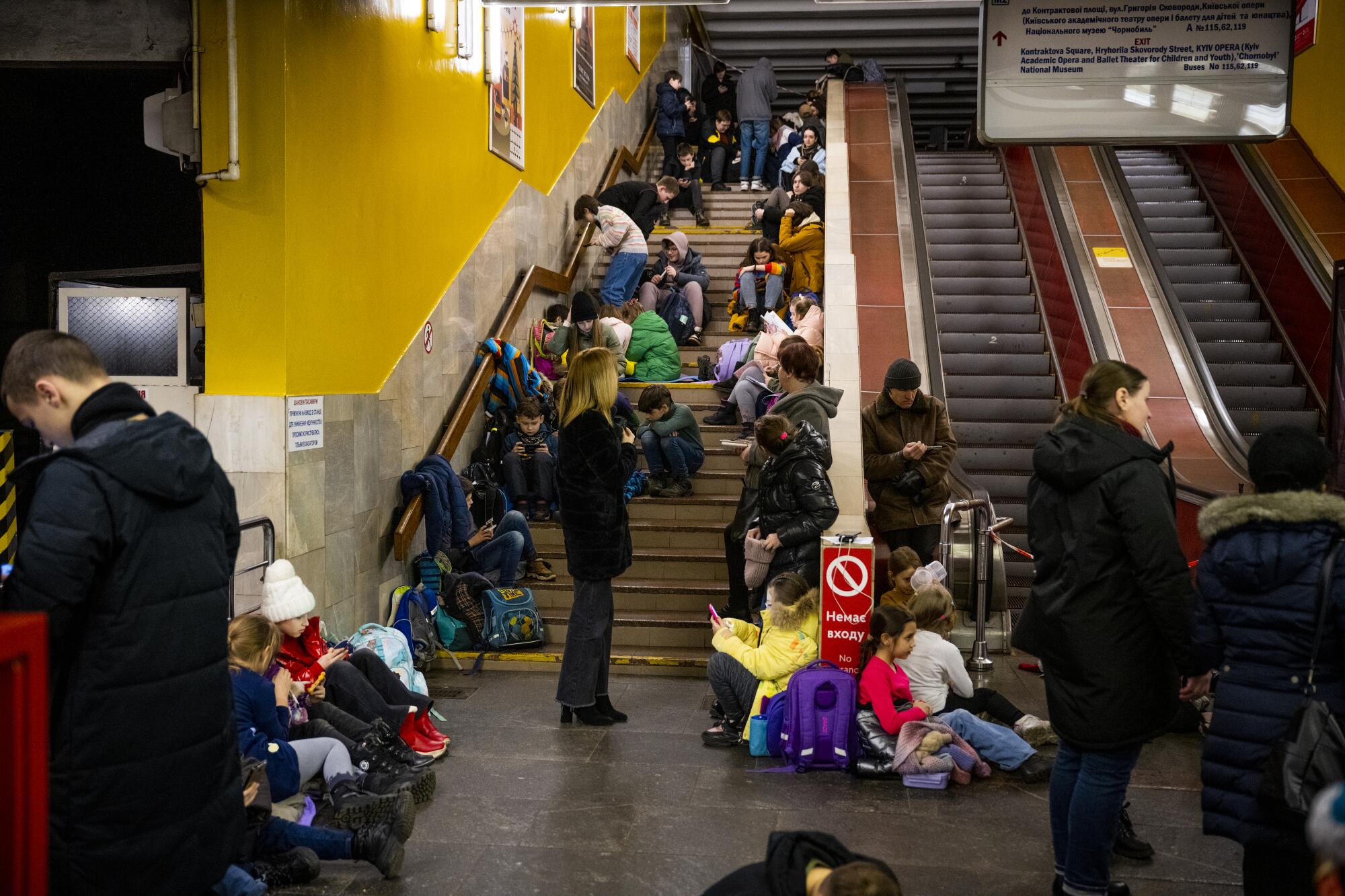
Looking back over these seasons of war, Ukrainians describe a sense of almost dreamlike disbelief, punctured by the visceral daily reality of air-raid alarms and news bulletins pinging on the smartphone. People speak of feeling energized as never before, of bone-deep exhaustion, and sometimes both of those things. They talk about former lives that now seem like faded images from an old picture book.
Here are the ways in which six Ukrainians have been marked by this last year, and how they think it might end ‚ÄĒ for them, for their country, for the world.
THE SOLDIER
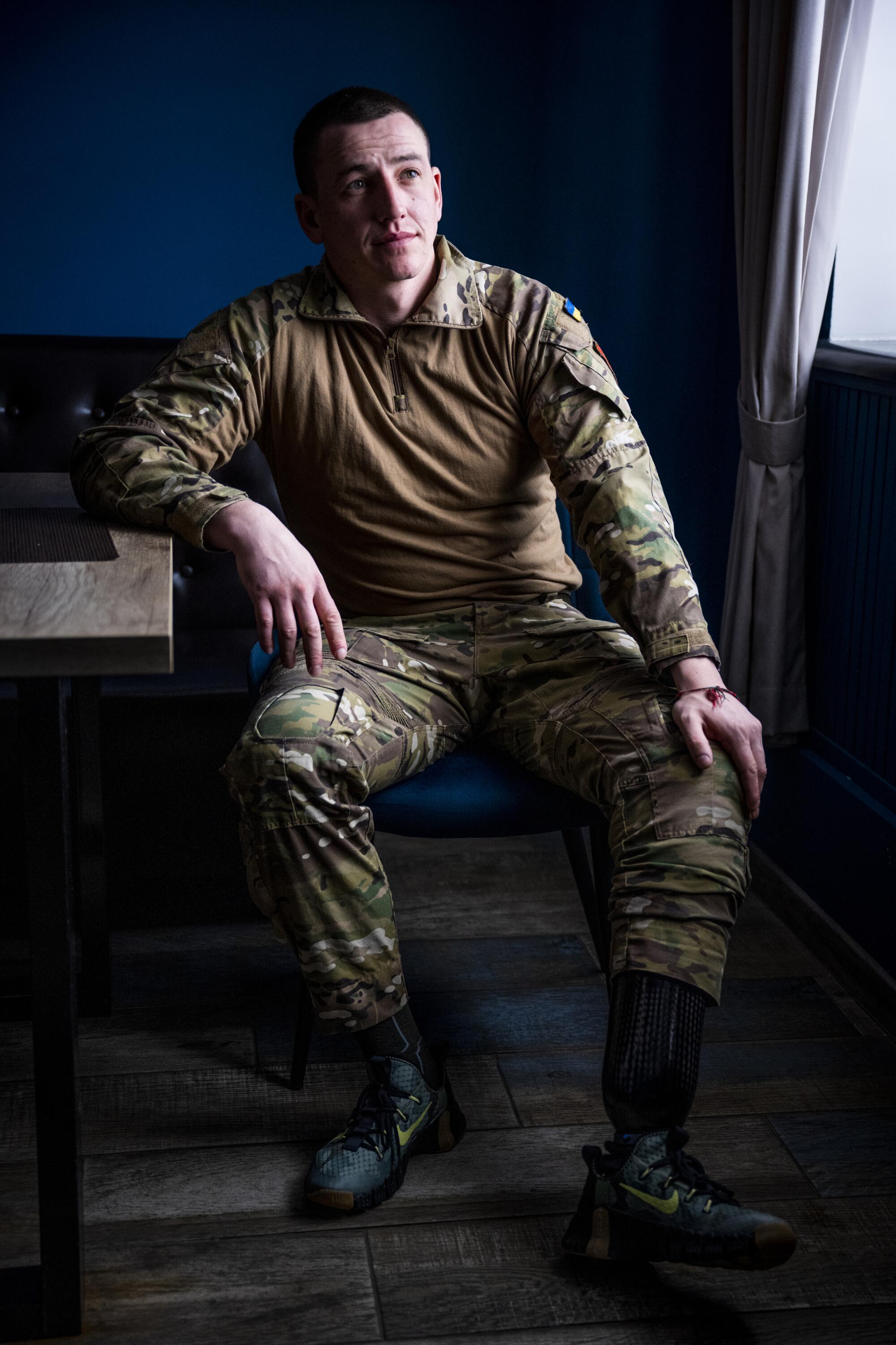
At first, the young lieutenant thought that his mortar unit, operating in a fiercely contested battle zone in southern Ukraine, had come under fire. Then Mykola Zaretskiy realized he had stepped on what he now believes was a cluster munition. The blast on that October day blew off his left foot and sprayed his other leg with shrapnel.
‚ÄúMy first thought was, ‚ÄėOK, I‚Äôm alive,‚Äô‚ÄĚ said the 30-year-old, who has close-cropped hair and a methodical manner. ‚ÄúMy second was that this war is over for me.‚ÄĚ
On one Ukrainian street, surveying the wreckage wrought by nearly 9-month-old war. How best to rebuild?
Maybe not, though: Zaretskiy’s goal is to return to active duty. Already, four months into his recovery, he can walk for short stretches using his prosthetic. He hopes to eventually join a reconnaissance unit, perhaps as a drone operator. The Ukrainian military allows those with below-the-knee amputations like his to serve if they are able.
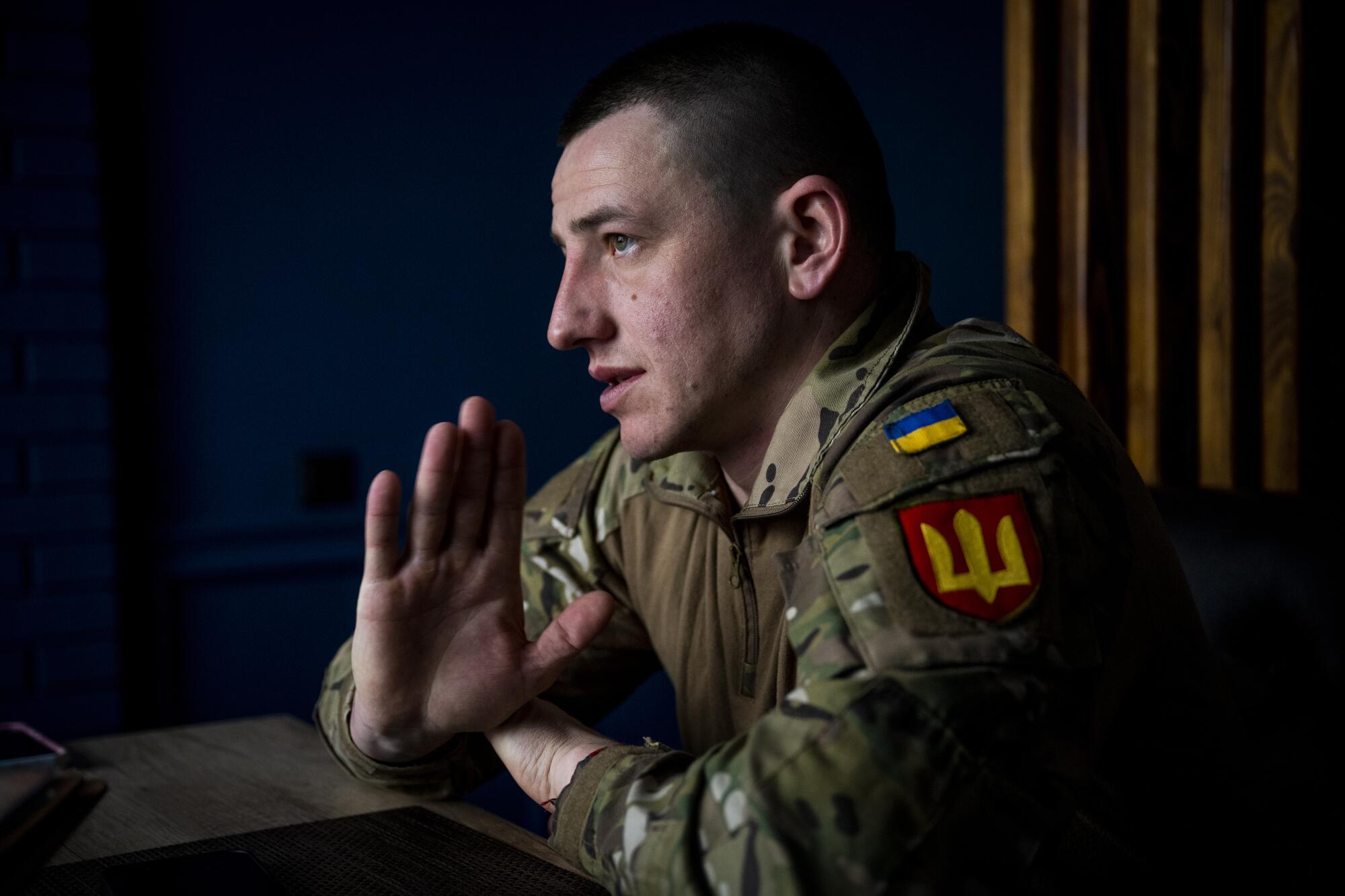
For the moment, he is back home in Sumy province, near the Russian border. Zaretskiy acknowledges moments of depression, but he is accustomed to approaching problems with calm resolve. After the explosion that maimed him, he applied a tourniquet himself, and tried to drag himself back toward his unit’s position. He wanted to minimize the danger to those under his command, but they ran to the rescue anyway.
By the time he was able to make the difficult call to his wife, his army buddies had already let her know he was seriously hurt but would survive. In a video call with his mother, he let her see the shrapnel-injured leg but at first hid the one with the missing foot beneath a blanket.
He definitely won’t be returning to his prewar job driving tractors, Zaretskiy says ruefully. But he bought a delivery truck that he leases out, and is casting an entrepreneurial eye to the future. In the meantime, he dotes on his 21-month-old daughter, who accepts his injury as a matter of course, because she can’t remember him as he was before.
‚ÄúShe knows that Papa is a mortar man,‚ÄĚ he said.
THE EDITOR
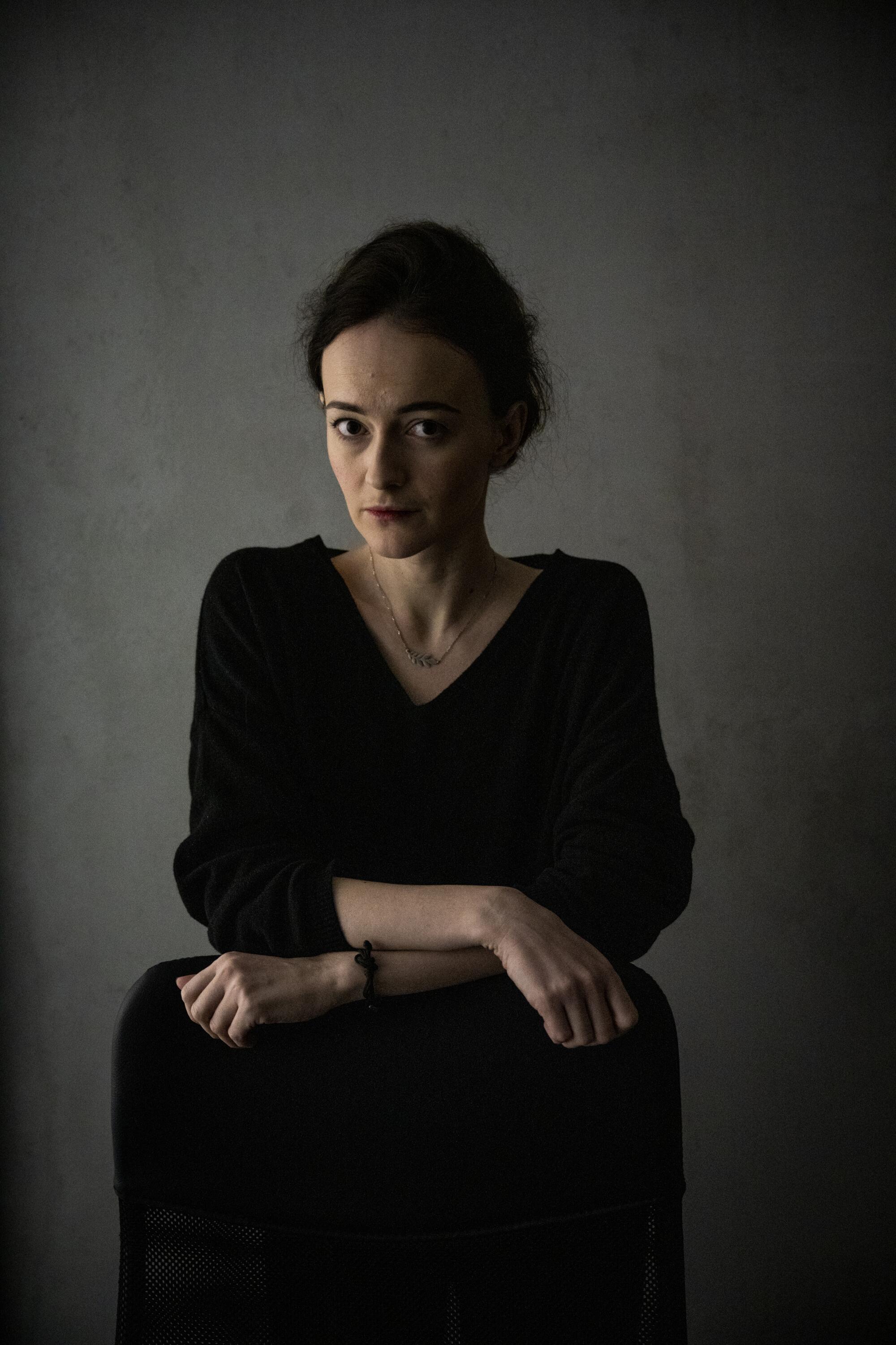
Scrawled placards mark the conference table at the Kyiv Independent, where nearly a year into the defining story of their lifetimes, staffers bat around news developments large and small.
There’s the war-crimes unit, following the investigations of thousands of alleged Russian atrocities. Another team covers government corruption, a sensitive issue in a country highly dependent on foreign wartime aid. And what’s up with that family that didn’t want to leave Bakhmut, one of the war’s most dangerous battle zones, without their cow?
Presiding over it all is Olga Rudenko, the 33-year-old editor in chief. Delicate-featured, by turns pensive and intense, she assumed her post 16 months ago, when the online English-language publication was born out of a rupture with an existing newspaper whose management was accused by staff of undermining editorial standards. The Independent went live only weeks before the Feb. 24 invasion.
Start-up hours were so long that when the Russian invasion was launched before dawn, Rudenko had shut down for the night only a few hours earlier. She and her staff went straight back to work ‚ÄĒ and have scarcely stopped since.
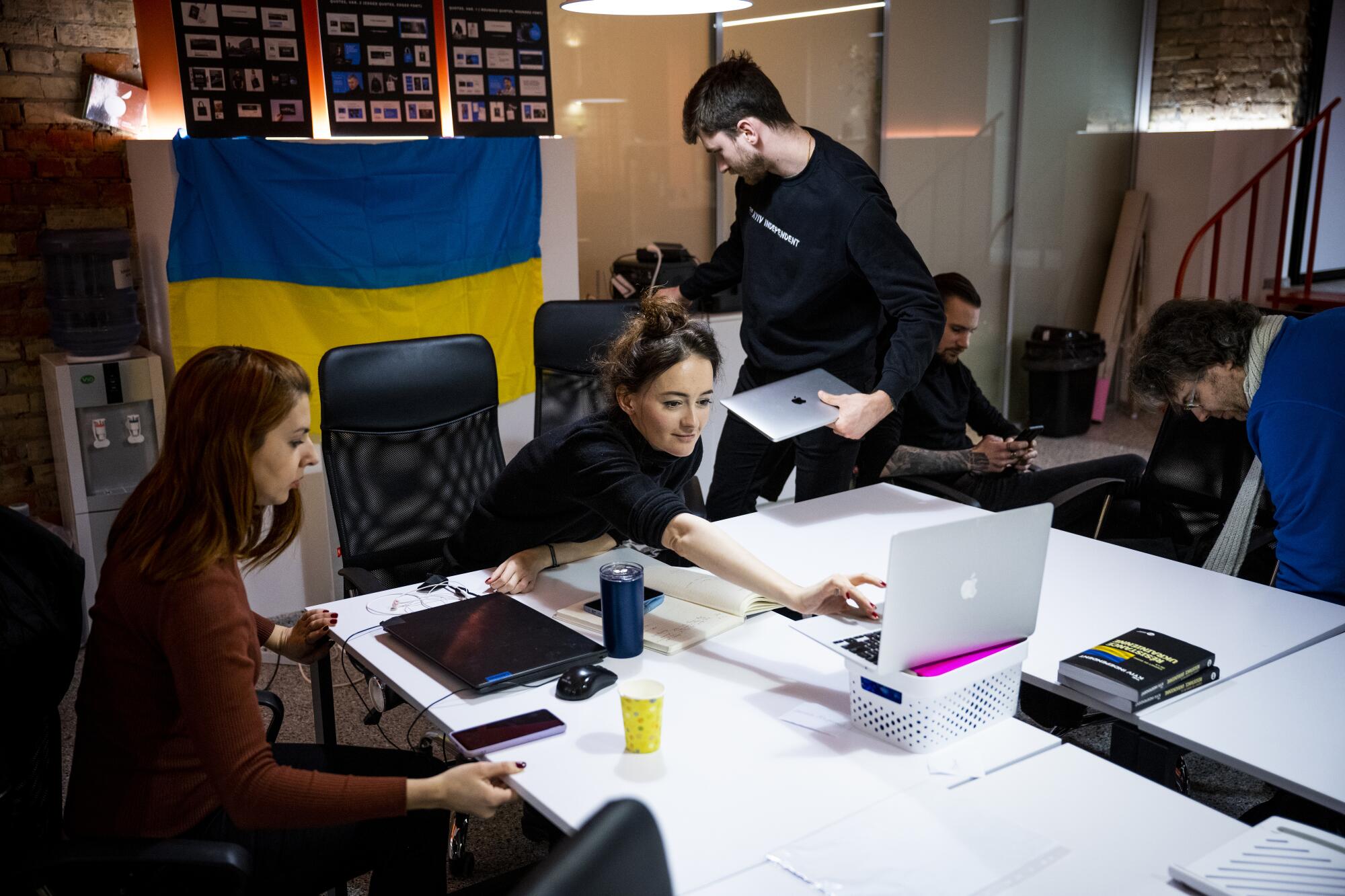
‚ÄúThe invasion started, all eyes were on Ukraine, and we were there,‚ÄĚ she said. ‚ÄúWe see ourselves as the world‚Äôs window into Ukraine, and Ukraine‚Äôs voice in the world.‚ÄĚ
With a worldwide audience of more than 2 million, the Independent chronicles the conflict in real time, turning out breaking-news bulletins, analyses, front-line reporting and in-depth features ‚ÄĒ all while staff members cope with the wartime loss of friends or family members, the scramble for electricity and connectivity during missile strikes, and the knowledge that the war will likely not end any time soon.
Looking back, Rudenko is proud of the terminology the Independent used in its first headlines, rejecting Putin‚Äôs characterization of the launch of a ‚Äúspecial military operation‚ÄĚ and reporting the start of a war.
And the publication’s name, chosen months before the war, has grown on her.
‚ÄúAt first, I really didn‚Äôt like it!‚ÄĚ she said, laughing. ‚ÄúBut we didn‚Äôt know then what huge meaning it would take on ‚ÄĒ for the country, for all of us.‚ÄĚ
THE MAYOR
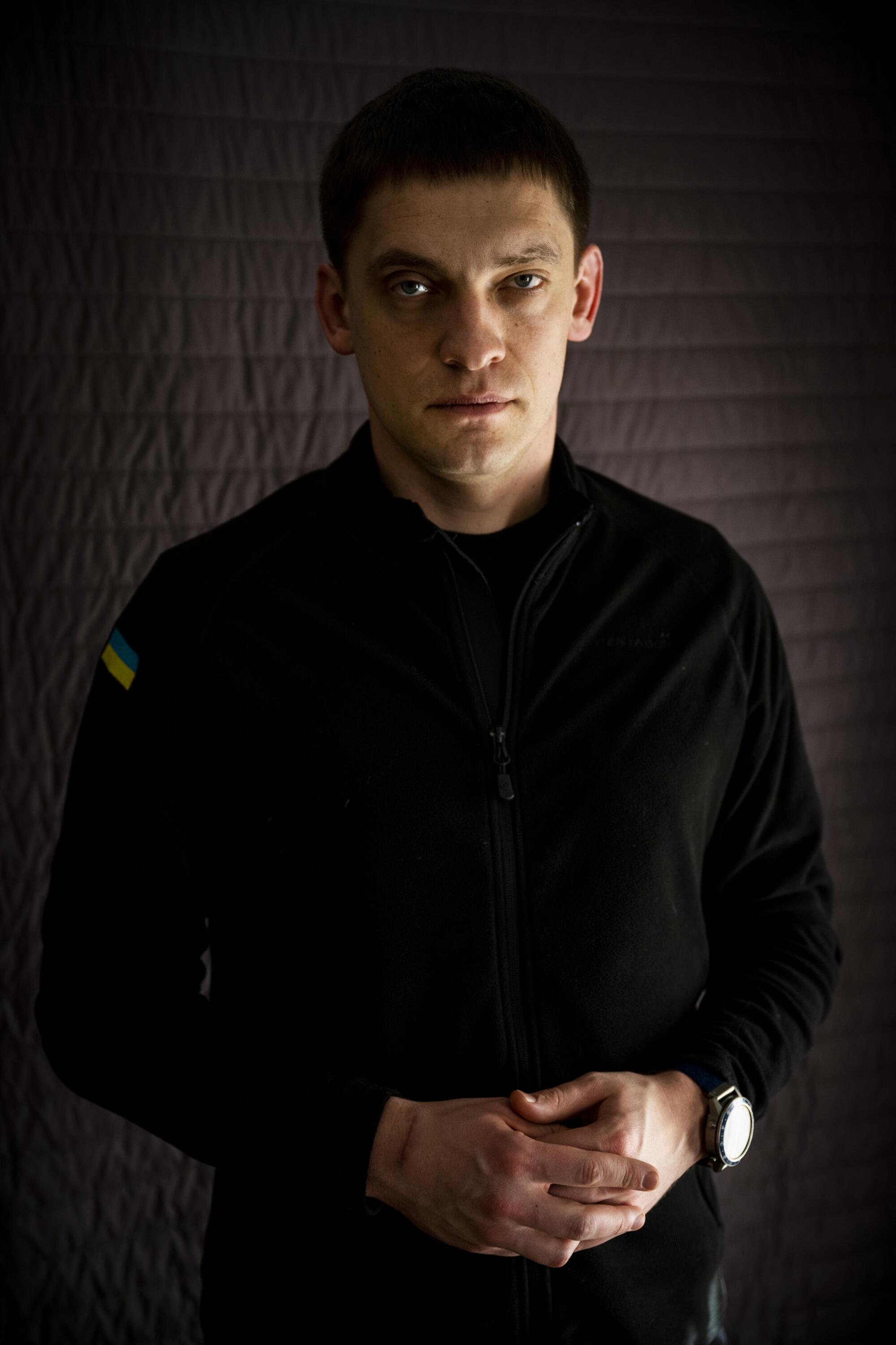
Federov can no longer set foot in Melitopol, the city where he remains the elected mayor. Occupying Russian forces took him prisoner once, and he knows they would waste no time in doing so again if he returned.
Melitopol, a transport hub near the Black Sea coast with a prewar population of about 150,000, fell to Russia at the very start of the war. As astonishing as it seems in retrospect, Russian forces there, as elsewhere, apparently believed they would be greeted as liberators. It took about two weeks, Federov said, before the occupiers ‚Äúunderstood things did not go according to their plan‚ÄĚ ‚ÄĒ that they were, in the eyes of most, a hated presence.
The 34-year-old mayor sees his task now as supporting his constituents, about two-thirds of whom were forced to flee the city, either joining the millions of people displaced within Ukraine or seeking shelter abroad.
Those who remain in Melitopol face the same risks confronted by Ukrainians in other occupied cities, particularly if they show support for the country‚Äôs cause: imprisonment and torture, even for seemingly minor infractions. The mayor told the story of a couple recently taken into custody after authorities searching their home found a child‚Äôs school medallion strung on a lanyard that was blue and yellow ‚ÄĒ the colors of the Ukrainian flag.
Fedorov had his own ordeal at the hands of the occupiers and the city’s new Russian-appointed administration. He elides precisely what happened to him after his arrest on March 11, but he spent six days in custody. He endured nightly interrogations, he said, until he was freed in a prisoner swap orchestrated by President Volodymyr Zelensky, who said the mayor had been tortured.
When he came to the capital and met with the president to thank him, the capital was a ‚Äúdead city,‚ÄĚ Fedorov said, still menaced by Russian tanks and armor. Recently he met with Zelensky again, and this time they talked about the prospect of victory.
Even if Ukraine prevails, mending community ties in countless towns and cities will be difficult. Many who fled suspect that some of those who stayed behind have collaborated with Russia. Some of those who remained in the city feel abandoned by neighbors who escaped.
‚ÄúWhen we have won, the first thing I will do is go with others to raise the flag in the city center,‚ÄĚ Fedorov said. ‚ÄúAnd then will come the difficult part, rebuilding trust in one another.‚ÄĚ
THE POET
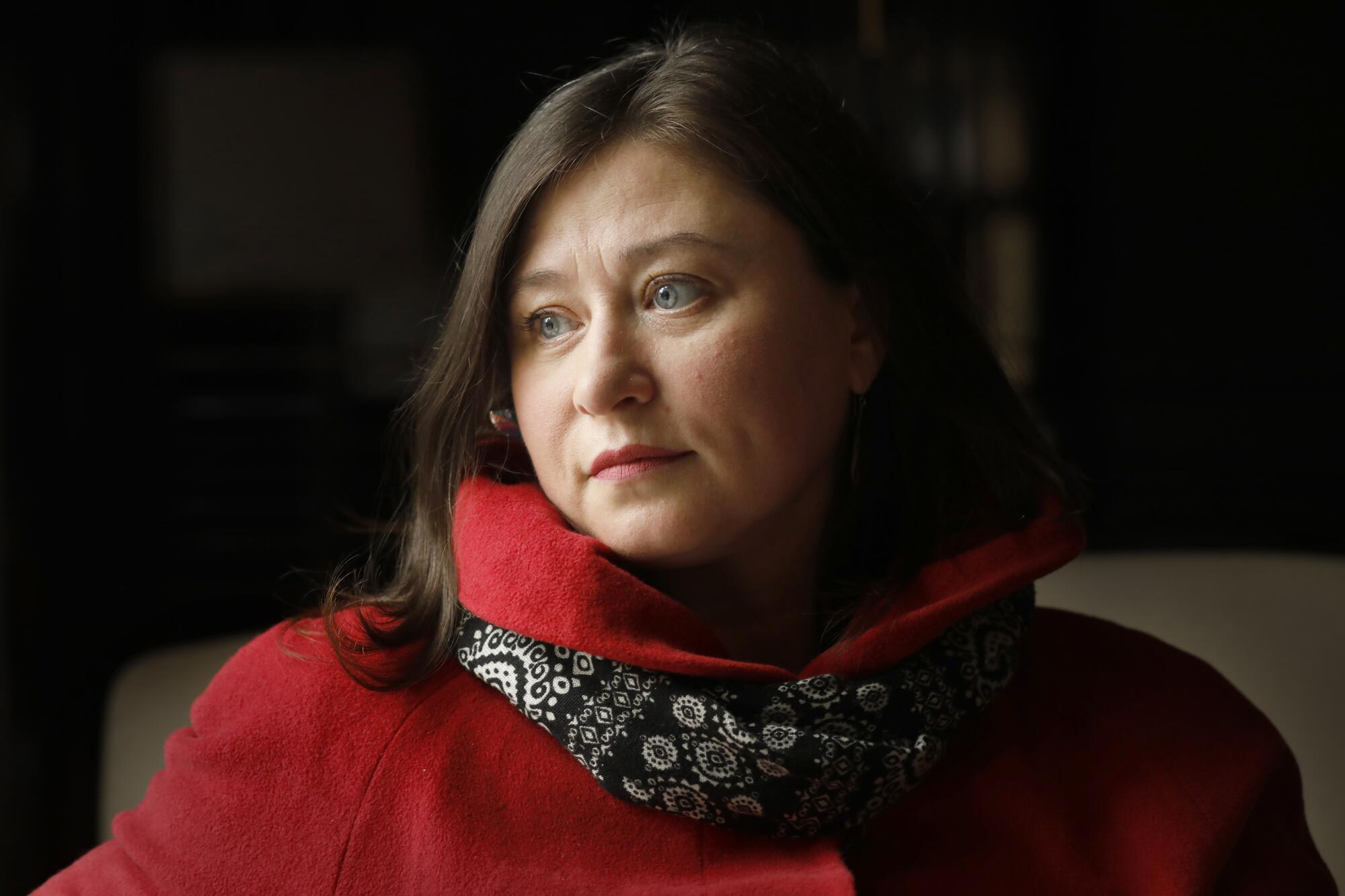
Although she is one of Ukraine‚Äôs preeminent poets, Halyna Kruk, 48, says she has been struggling with how to capture this war in art ‚ÄĒ and whether, at this juncture, one should even try.
In one recent poem, she mused on how future scholars will describe ‚Äúthe early ‚Äô20s in the relevant chapters on Ukrainian literature‚ÄĚ before landing on the devastating final line: ‚ÄúThe main thing is not to forget that none of this was about literature.‚ÄĚ
‚ÄúI‚Äôve had this impression from the beginning, that Ukrainian literature was looking for a language that can depict this war,‚ÄĚ said Kruk, who lives in the western city of Lviv, where she is also a translator and a scholar of Ukrainian and European literature of the Baroque period. ‚ÄúWe have to learn to find words.‚ÄĚ
The words do come, if painfully.
Seeing an unexploded missile lodged in asphalt, the unknown speaker in one poem says: ‚ÄúI‚Äôm the one that exploded / I‚Äôm the one that‚Äôs gone.‚ÄĚ In another, artillery shells land ‚Äúlike migrant birds.‚ÄĚ Sometimes she turns sardonic: ‚ÄúThe war‚Äôs taking care of our future / as they say.‚ÄĚ
Kruk, who has published five volumes of verse along with several children‚Äôs books and many translations, has a new collection due out in May, called ‚ÄúA Crash Course in Molotov Cocktails.‚ÄĚ One of her translators, UC San Diego associate professor of literature Amelia Glaser, points to Kruk‚Äôs intimate, intricate way of blending ‚Äúformal experimentation with a straightforward documentation of the everyday reality of a twenty-first century war.‚ÄĚ
In a country with an extraordinarily long and rich literary tradition, this war has brought an outpouring of written expression, much of it raw and unfiltered. People post poems on Facebook. They keep bomb-shelter journals. Soldiers compose verse in the trenches. Songwriters draw on the grim language of news bulletins, and military terminology, put to literary use, takes on a kind of magic realism.
For Kruk, the war sometimes translates more readily into her scholarly world. ‚ÄúI look at 18th century Cossack literature, formed on the basis of war ‚ÄĒ through the things happening right now, every day, you can understand literature of all human ages,‚ÄĚ she said.
Her poems offer some consolation, though of the starkest sort.
‚ÄúWe act like children with our dead,‚ÄĚ she writes, ‚Äú... confused / as if none of us knew until now / how easy it is to die.‚ÄĚ
THE BARTENDER
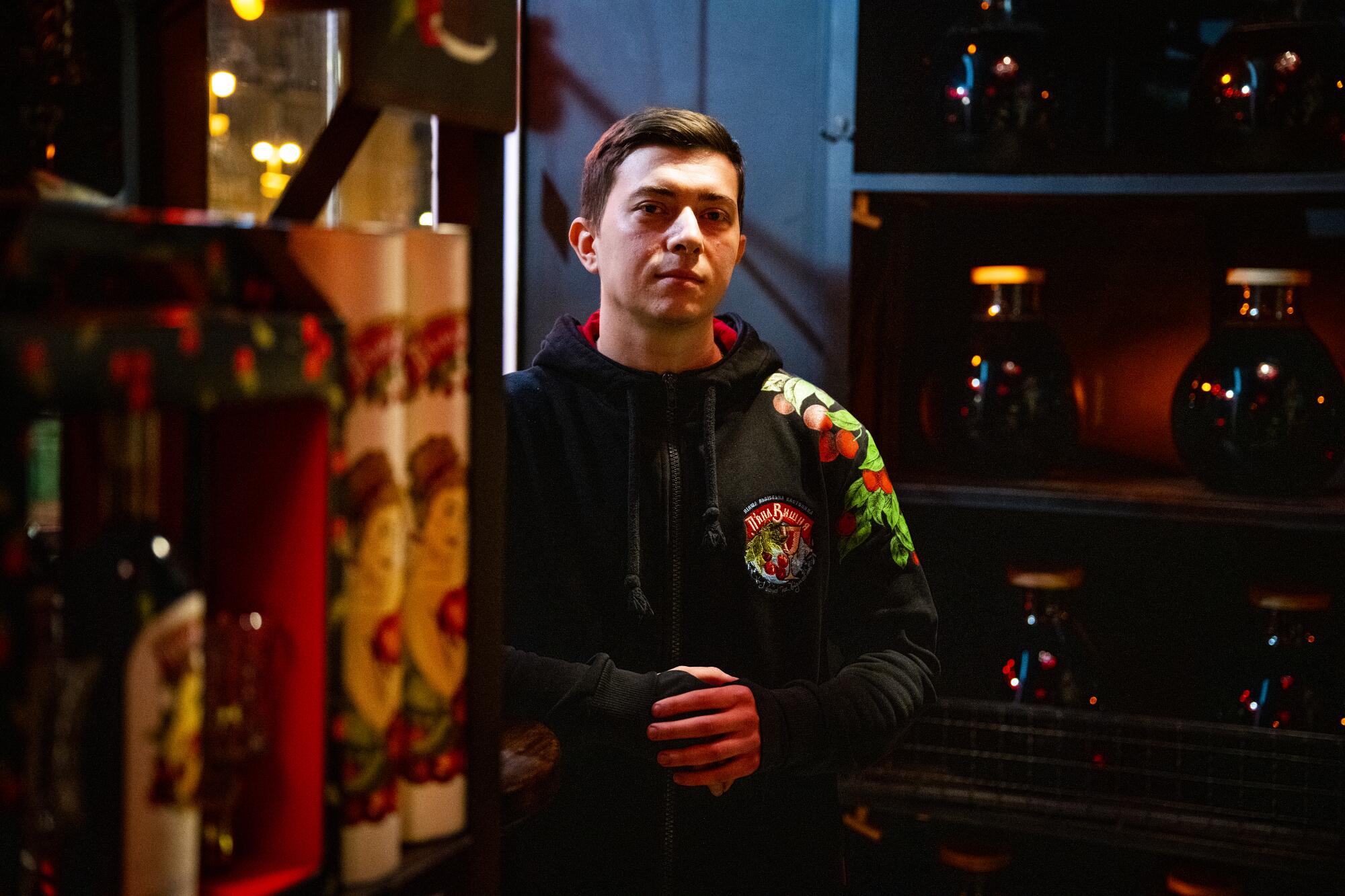
Traditional cherry liqueur, the only drink served in the bar where 24-year-old Dmytro Sakhyiuk works, might sound like a cloying concoction, but the establishment is part of a popular chain found all over Ukraine.
At this branch of the Drunken Cherry in downtown Kyiv, crowds regularly brave the winter chill, air-raid alerts and an 11 p.m. curfew, spilling out into the street, clutching paper cups of the ruby-colored drink. On-leave soldiers seem to have a particular taste for it, and they chat nightly with Sakhyiuk and each other about life and love, friends and family, all kinds of trivia ‚ÄĒ pretty much everything except what it‚Äôs like these days on the battlefront.
Sakhyiuk started work as a barkeep only the month before the war began. He left for a few months to be with family in their provincial town when Russian troops were menacing the city, but he soon returned, and now Ukraine’s quirky capital feels like home. Health issues prevented him from enlisting, but he believes Ukrainian solidarity is unbroken by a year like none he has ever seen.
‚ÄúWe‚Äôll win,‚ÄĚ he said. ‚ÄúThere is no other option, none.‚ÄĚ
Then he turned his attention to preparing a customer‚Äôs drink. ‚ÄúGo on, take a few sips first,‚ÄĚ he urged. ‚ÄúThen I can add in the cherries!‚ÄĚ
THE VOLUNTEER
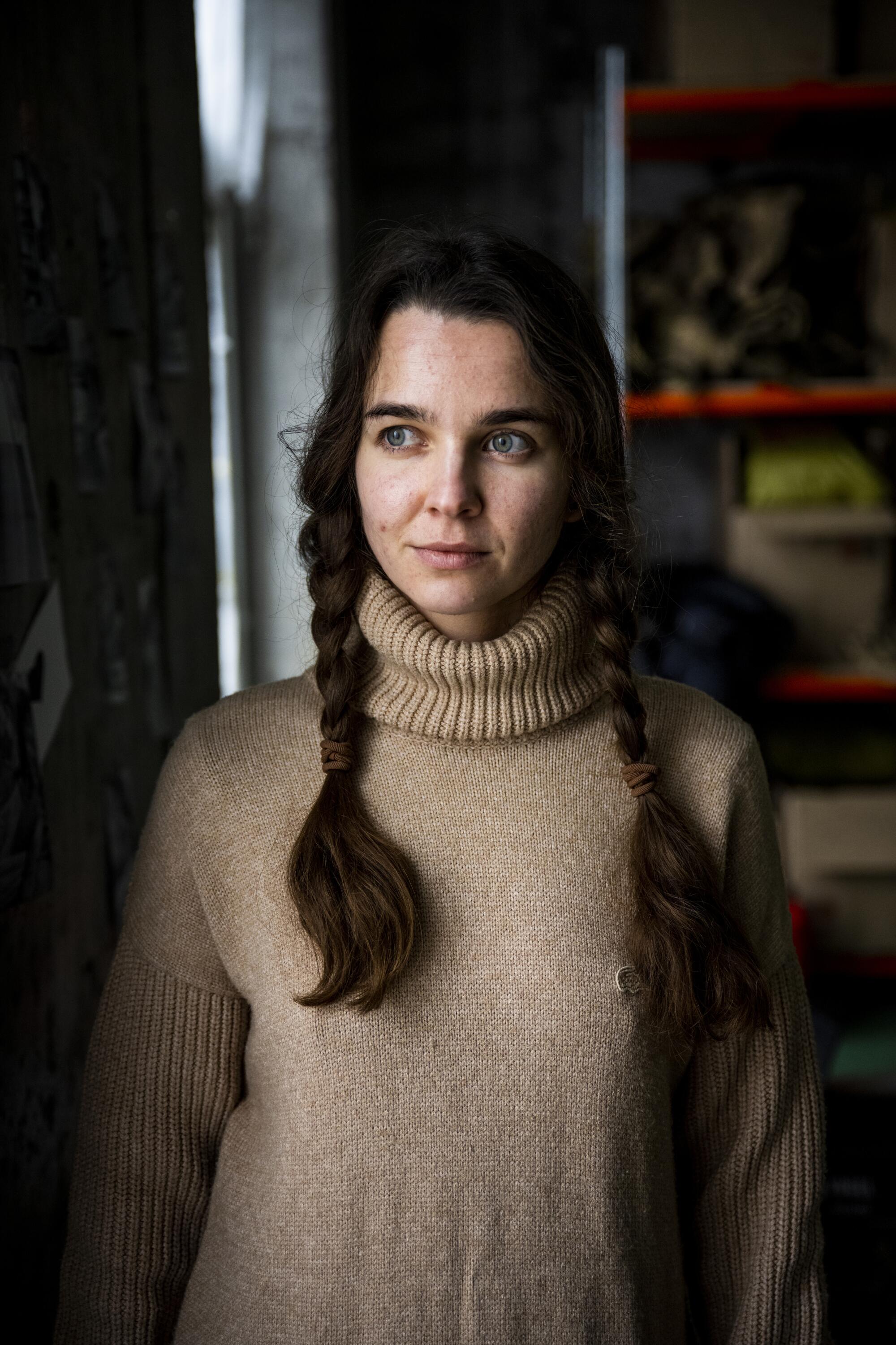
When the war broke out, travel guide Ksenia Drahaniuk had just returned from a work trip to Cyprus, and was getting ready to lead a group of tourists to the Georgian capital, Tbilisi, famed for its food and wine.
In concert with the roar of incoming missiles, the 27-year-old’s priorities immediately changed: How, she wondered, could she help Ukraine?
The answer presented itself when her sister-in-law stopped by on home leave from the military, clad in fatigues that were not only far too big for her small frame, but made for summertime, not a winter war.
Drahaniuk knew then what she needed to do. She and her husband, Andrii Kolesnyk, founded a group called Zemliachky, which roughly means ‚Äúfemale compatriots.‚ÄĚ It assembles and ships care packages for some of the more than 55,000 women serving in the Ukrainian military. The packages are filled with drugstore staples like hygiene products, lip balm and hand cream, and a special funnel, long available at outdoor stores, that lets women urinate standing up.
Working out of a warehouse in a nondescript part of Kyiv, the couple and eight staffers outfit military women with properly sized gear, including combat boots and sports bras ‚ÄĒ even maternity uniforms, with one of the first going to a sniper.
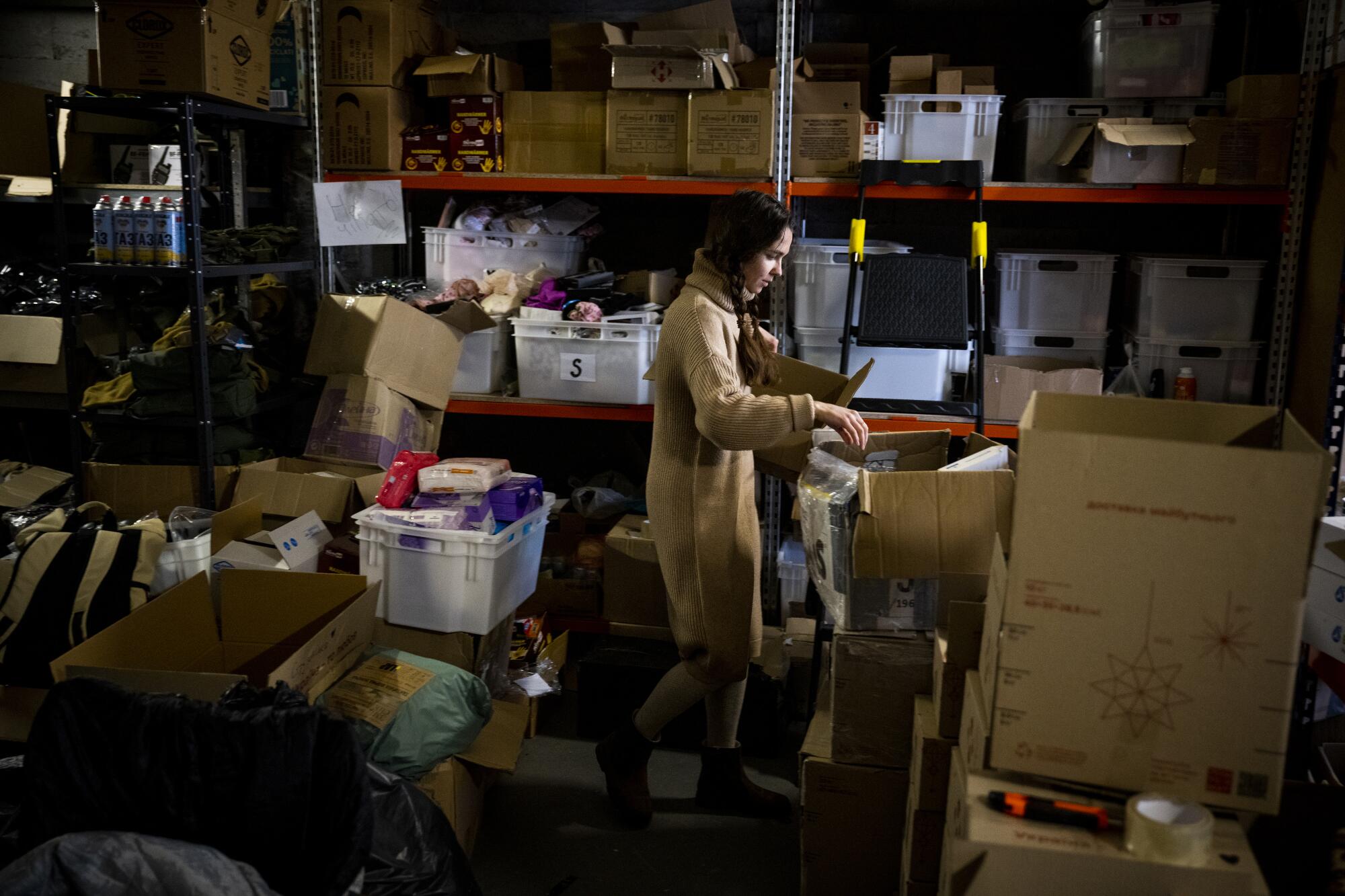
The effort has expanded to other kinds of support, including matching up women soldiers with on-call psychologists who conduct remote sessions with them, sometimes with artillery booming in the background. The group’s work has attracted corporate donors and the attention of the government. Zelensky recently bestowed a special medal at a ceremony honoring civilians who help the war effort.
Such accolades are welcome, but attachments formed through the group’s work also generate heartbreak. Recently, a package sent to the front was returned because the intended recipient had been killed.
‚ÄúWe‚Äôll keep going as long as the war does,‚ÄĚ Drahaniuk said. Her former life, leading overseas trips and hosting a travel show, seems distant now.
Moments of levity can brighten the day. A few months ago, a young soldier, who stopped by the warehouse while on a short leave in the capital, was delighted to receive a pair of warm field boots that fit her perfectly.
Everyone laughed when she stuck out her foot and theatrically waggled it, as if showing off a designer stiletto.
‚ÄúI feel like Cinderella!‚ÄĚ she said.
Then she was off, headed back to the front.
Ukraine sees Crimea, the strategic peninsula illegally annexed by Russia nearly nine years ago, as potentially within its grasp.
Watch L.A. Times Today at 7 p.m. on Spectrum News 1 on Channel 1 or live stream on the Spectrum News App. Palos Verdes Peninsula and Orange County viewers can watch on Cox Systems on channel 99.
More to Read
Sign up for Essential California
The most important California stories and recommendations in your inbox every morning.
You may occasionally receive promotional content from the Los Angeles Times.
